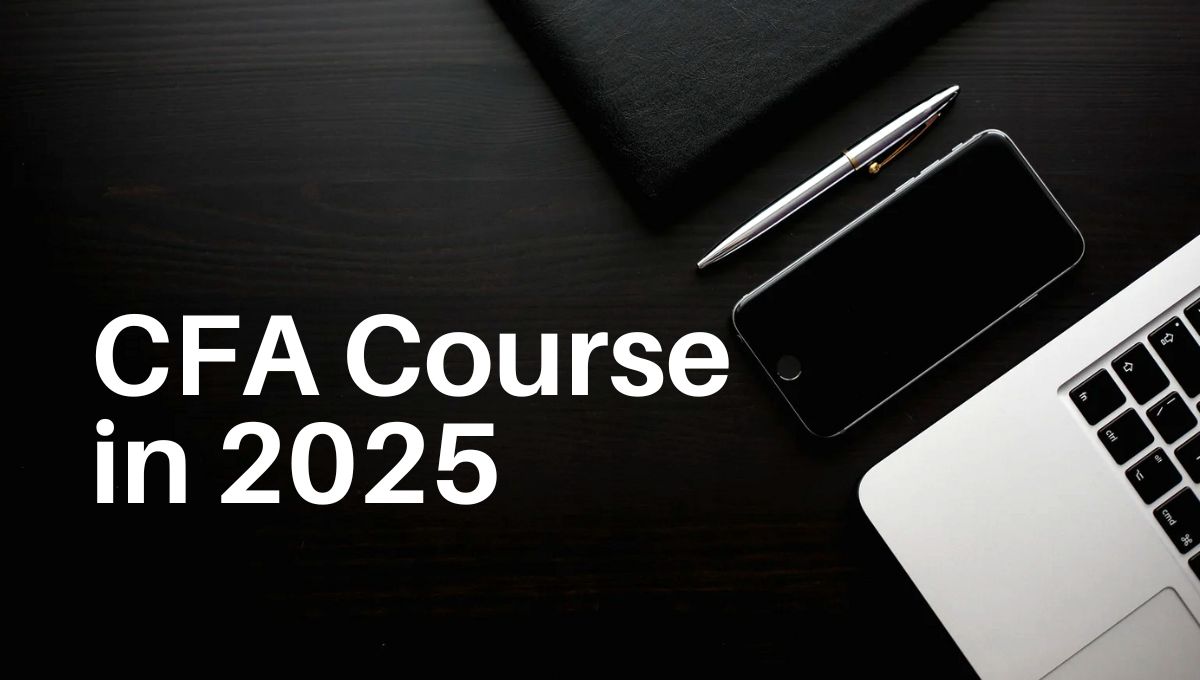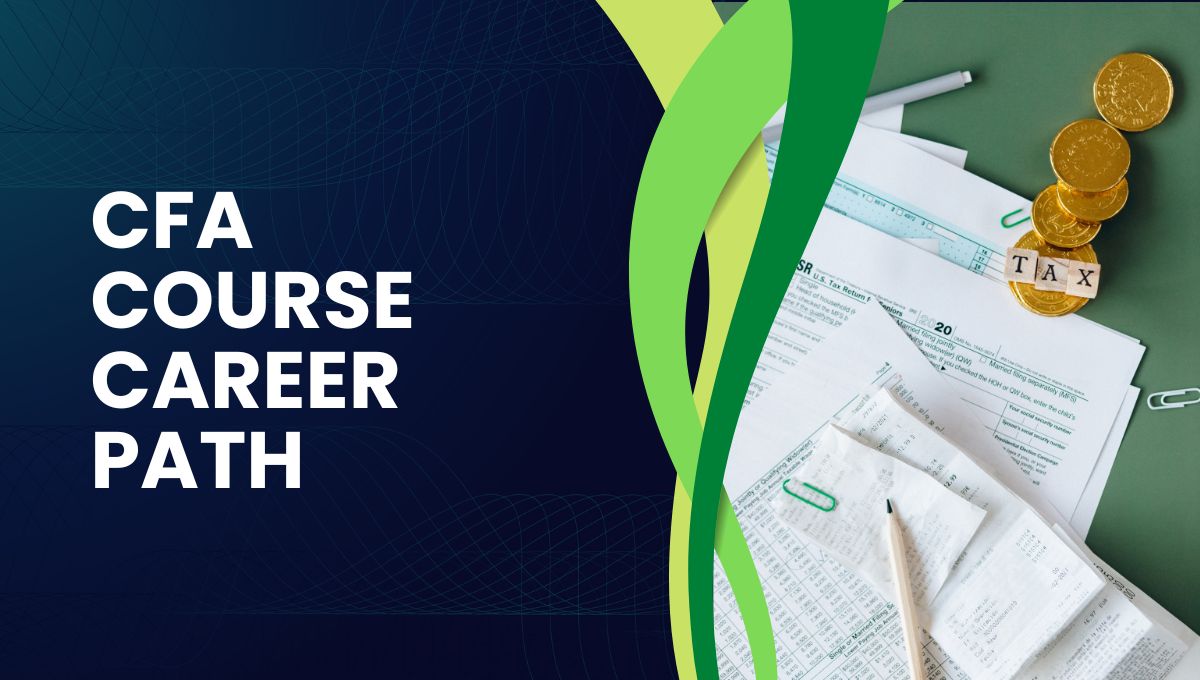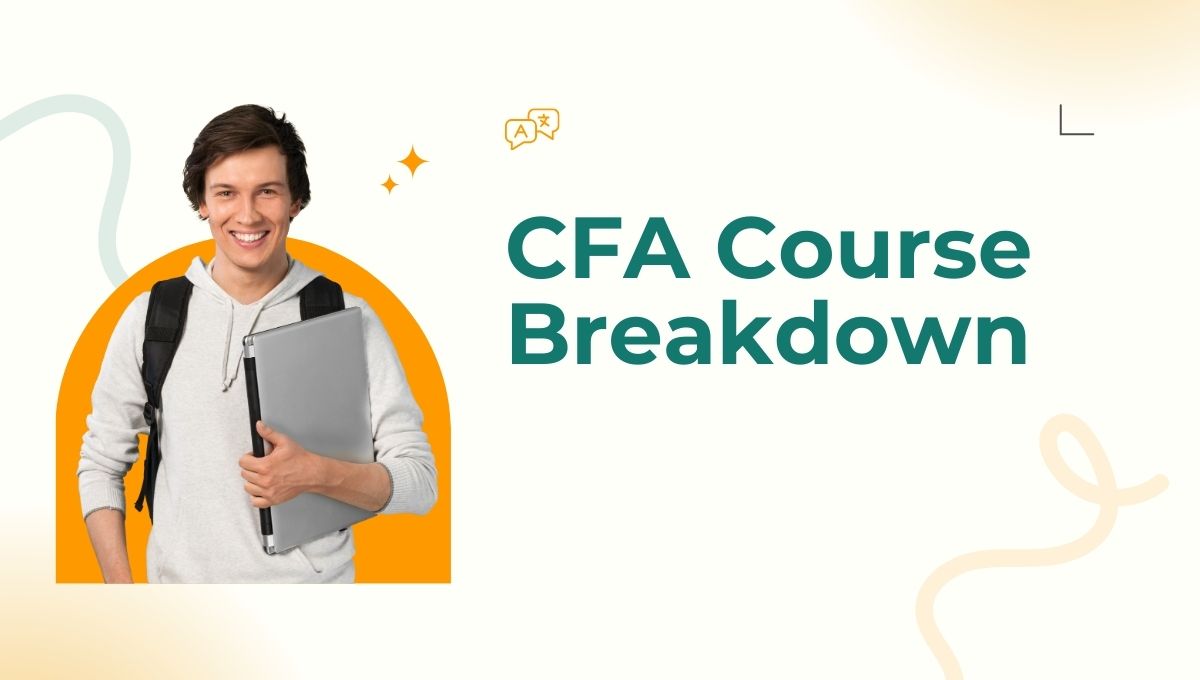Chartered Financial Analyst (CFA) certification has long been the pinnacle of success for investment professionals all over the world. Offered by the CFA Institute, the CFA charter represents an in-depth grasp of investment management, financial analysis, and ethical behavior. Yet with the developing financial industry amid technological advancements and changing market forces, most next-generation finance specialists in 2025 are asking whether the CFA certification remains relevant and valuable.
In this comprehensive study, we will delve into several aspects of the CFA program, including its format, exam difficulty, fees, duration, career prospects, and future relevance, to determine if it is a worthy investment or a buzzed-up effort to obtain the CFA charter in 2025.
Understanding the CFA Program
The CFA Program is a worldwide recognized credential that emphasizes investment management and financial analysis. The program aims to equip candidates with solid foundations in advanced investment analysis and applied portfolio management methods.
Structure of the CFA Program
The CFA Program consists of three levels, increasingly covering more complex subjects:
- Level I: Covers elementary knowledge and awareness of investment tools, professional and ethical standards.
- Level II: Covers application of investment tools and concepts with emphasis on valuations of different assets.
- Level III: Covers synthesizing all the concepts and analytical methods into different applications in effective portfolio management and planning of wealth.
Eligibility Requirements
To be part of the CFA Program, candidates should qualify under one of the following categories:
- Hold a bachelor’s degree or comparable from an approved university.
- Be at the last stage of a bachelor’s degree course.
- Have an combination of education and professional work experience of no less than four years.
Moreover, applicants should have an internationally accepted travel passport and be prepared to enroll in the CFA Institute Code of Ethics and Standards of Professional Conduct.
Overview of Curriculum
The CFA curriculum is thorough, touching on a broad range of topics relevant to investment professionals:
- Ethical and Professional Standards
- Quantitative Methods
- Economics
- Financial Reporting and Analysis
- Corporate Finance
- Equity Investments
- Fixed Income
- Derivatives
- Alternative Investments
- Portfolio Management and Wealth Planning
This broad curriculum educates the CFA charterholders on how to handle the complexities of the international financial markets.
CFA Exam Difficulty: How Difficult is it?
The CFA exam is among the toughest finance exams globally. It is renowned for possessing a low pass rate and stringent study criteria.
CFA Exam Pass Rates (2023)
| Exam Level | Pass Rate (%) |
| Level I | 41% |
| Level II | 45% |
| Level III | 52% |
Why is the CFA Exam So Hard?
- Comprehensive Syllabus: Encompasses more than 3,000+ pages of study material.
- Tough Questions: Demands thorough knowledge of ethics and financial modeling.
- Stringent Exam Conditions: 4.5 hours per session, requiring undivided attention.
- Ethics Section: Puzzles most of the candidates because it is scenario-based questioning.
Study Plan for CFA
For higher pass rates, use this structured study plan:
- Spend 300+ hours per level.
- Begin preparation at least 6 months before the exam.
- Use CFA Institute study materials and third-party study guides (Kaplan, Wiley).
- Take at least 5-6 full-length practice tests.
- Attend CFA study groups or coaching for clarifying doubts.
With focus, CFA can be cleared within 2 years.
CFA Course Fees and Duration
The CFA course involves financial investment and time.
CFA Course Fees Breakdown
| Cost Component | Fees (USD) |
| One-time Enrollment | $350 |
| Early Registration | $990 per level |
| Standard Registration | $1,290 per level |
| Study Materials | $300 – $1,300 |
| Exam Retake Fee | $990 – $1,290 |
How Long does CFA take?
- Minimum time: 2 years (on first attempt pass).
- Average time taken: 3-4 years.
- Max attempts per level: Six attempts.
Time and money invested makes CFA a long but valuable investment.
Future Scope of CFA in 2025
With financial models made possible with AI, robo-advisors, and blockchain changing finance, is CFA relevant anymore?
Why CFA is Still Relevant in 2025
- Strong Global Demand for Investment Professionals.
- Increasing demand for ESG (Environmental, Social, Governance) Analysts.
- CFA + FinTech Knowledge = Competitive Edge.
CFA charter holders possessing AI, blockchain, and financial data analytics competencies will be extremely valuable.
CFA Salary After Passing
CFA Salary Structure
| Experience Category | Average Salary (INR) |
| Entry-Level (0-2 years) | ₹7-12 LPA |
| Mid-Level (3-7 years) | ₹13-25 LPA |
| Senior-Level (8+ years) | ₹26-50 LPA |
| Chief Investment Officer | ₹1 Cr+ |
Frequently Asked Questions (FAQs)
1. Is CFA superior to an MBA in 2025?
- CFA is technical and investment oriented, whereas MBA has greater business exposure.
- In case you wish to be an investment banker, asset manager, or equity research analyst, CFA is suggested.
2. Is there a high failure rate in CFA?
Yes. Only 10-15% of candidates pass all three levels together.
3. Can I pursue CFA and MBA simultaneously?
Yes, most professionals opt for CFA with MBA for the highest career gains.
4. What are the limitations of CFA?
- Very high level of complexity.
- Long period (3-4 years).
- No employment placement assurance.
5. Which sectors recruit CFAs?
- Investment Banking
- Hedge Funds & Private Equity
- Risk & Asset Management
Conclusion & Key Takeaways
Final Verdict: Is CFA Still Worth It?
The CFA program remains worthwhile for investment professionals and the cfa demand in future will be high, but the aspirants need to keep themselves updated with industry developments.
Key Takeaways
- CFA remains in great demand across the world.
- Salary prospects are great, though placement is not assured.
- Integration of technology (AI, blockchain, FinTech) is imperative for future CFA professionals.
Do you want to become a CFA charterholder? Take a look at this CFA certification course for professional education.



